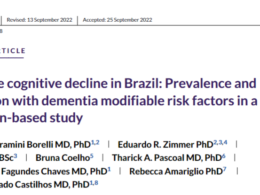The Lancet Global Health
EDITORIAL
VOLUME 8, ISSUE 11, E1352, NOVEMBER 01, 2020
October 10 marks World Mental Health Day.
This year’s campaign theme, developed by WHO, United for Global Mental Health, and the World Federation for Mental Health, recognises that investment in mental health has not matched rising global awareness of the scale of the problem in recent years.
The campaign slogan-”Move for mental health: Let’s invest”-calls the world to action and, for the first time, will be accompanied by a global online advocacy event.
From addiction to dementia to schizophrenia, almost 1 billion people worldwide suffer from a mental disorder.
- Lost productivity as a result of two of the most common mental disorders, anxiety and depression, costs the global economy US$ 1 trillion each year.
- In total, poor mental health was estimated to cost the world economy approximately $2·5 trillion per year in poor health and reduced productivity in 2010,
- a cost projected to rise to $6 trillion by 2030.
Yet, despite substantial advances in research, demonstrating the clinical and cost-effectiveness of pharmacological and psychosocial interventions to prevent and treat common mental disorders, delivery at scale and translation into real-world benefits has been slow.
The costs involved in mental health care are many and can involve social services, primary, secondary, and tertiary care.
In addition to direct intervention costs, expenditure can be expected to cover facilities, staff, administration, management, training, supervision, advocacy and outreach activities.
The diversity of services and care providers can complicate estimates of national mental health expenditure.

The WHO Mental Health Atlas 2017 requested that countries estimate their government’s total spend on mental health, using subnational and national data.
- They found that, on average, mental health expenditure accounted for less than 2% of government budgets for health.
The report highlighted how care and treatment for severe mental disorders is not included in national health insurance or reimbursement schemes in 27% of 169 responding countries.
- When asked how people pay for services, 17% of 168 responding member states said that service users paid out-of-pocket.
Indeed, out-of-pocket payments for mental health services account for 43% of mental health expenditure in the African region and 40% in the South-East Asia region. - While a combination of bilateral, multilateral, private, and philanthropic donations have contributed somewhat to filling the funding gap, development assistance for mental health has never been more than 1% of global development assistance for health.
The economic case
The economic case for investment in mental health is strong:
- for every $1 invested in scaled-up treatment for depression and anxiety,
- there is a $4 return in better health and productivity.
The Lancet Commission on global mental health and sustainable development, published in 2018,
- called for a partnership including academic institutions, UN agencies, development banks, the private sector, and civil society organisations to mobilise, disburse, and invest funds to transform mental health, stating that “When it comes to mental health, all countries can be thought of as developing countries.”
This is a statement that certainly rings true in 2020, with the clustering of multiple social determinants of mental health-fear and anxiety about COVID-19, emotional distress resulting from illness, bereavement, unemployment, income loss, and loneliness due to social isolation-all interacting, and generating or exacerbating mental health problems at a global scale.
A position paper published in The Lancet Psychiatry in July stated that, although the psychological toll of COVID-19 is already apparent, the effects will be far-reaching. And “Sooner or later, health systems will be faced with widespread demand to address these COVID-19-related mental health needs”.
Indeed, international organisations called for the inclusion of mental health and psychosocial support in the COVID-19 response.
A UN policy brief published in May stated, “This historic underinvestment in mental health needs to be redressed without delay to reduce immense suffering among hundreds of millions of people and mitigate long-term social and economic costs to society.”
The COVID-19 pandemic marks a turning point, moving mental health up the list of global health priorities.
As countries struggle to rebuild their damaged economies, they must accept the reality of the financial toll of mental ill-health and invest wisely now.
As countries struggle to rebuild their damaged economies, they must accept the reality of the financial toll of mental ill-health and invest wisely now.
Article Info
Originally published at https://www.thelancet.com.












